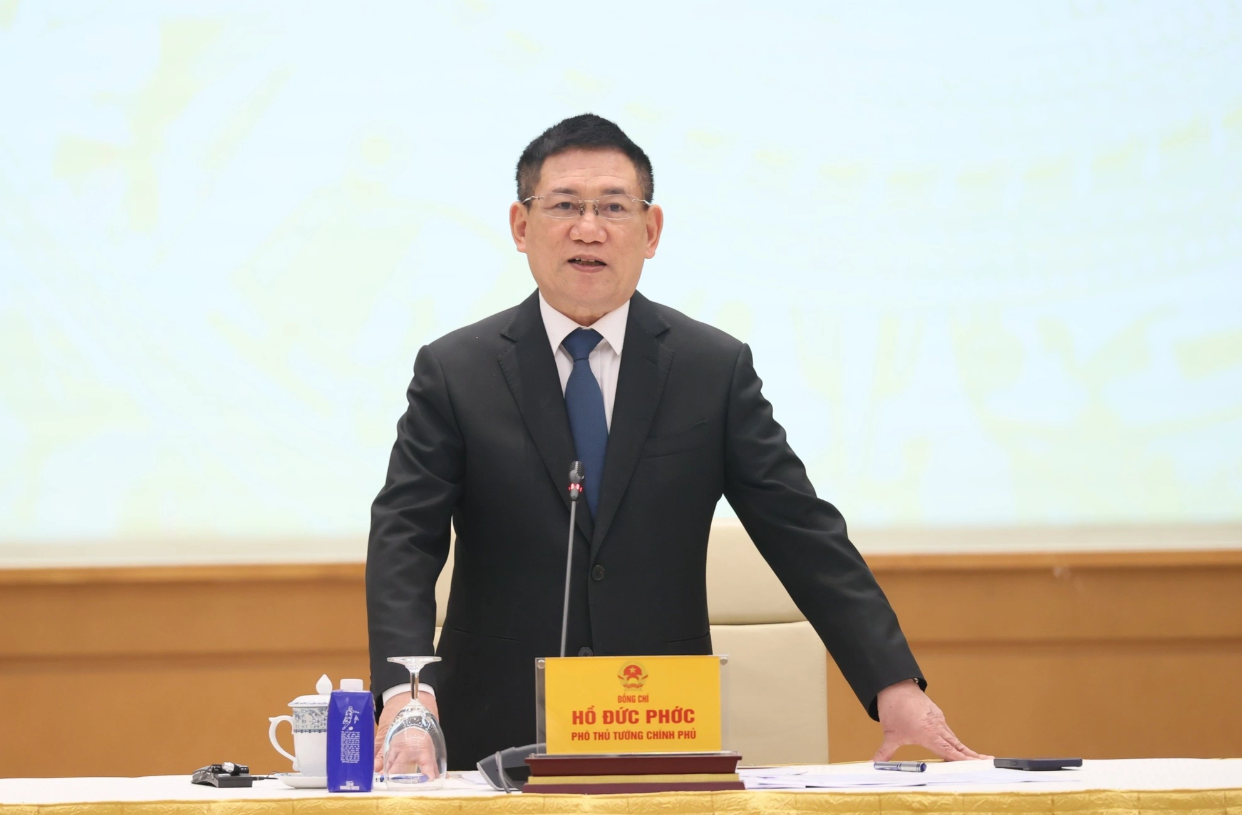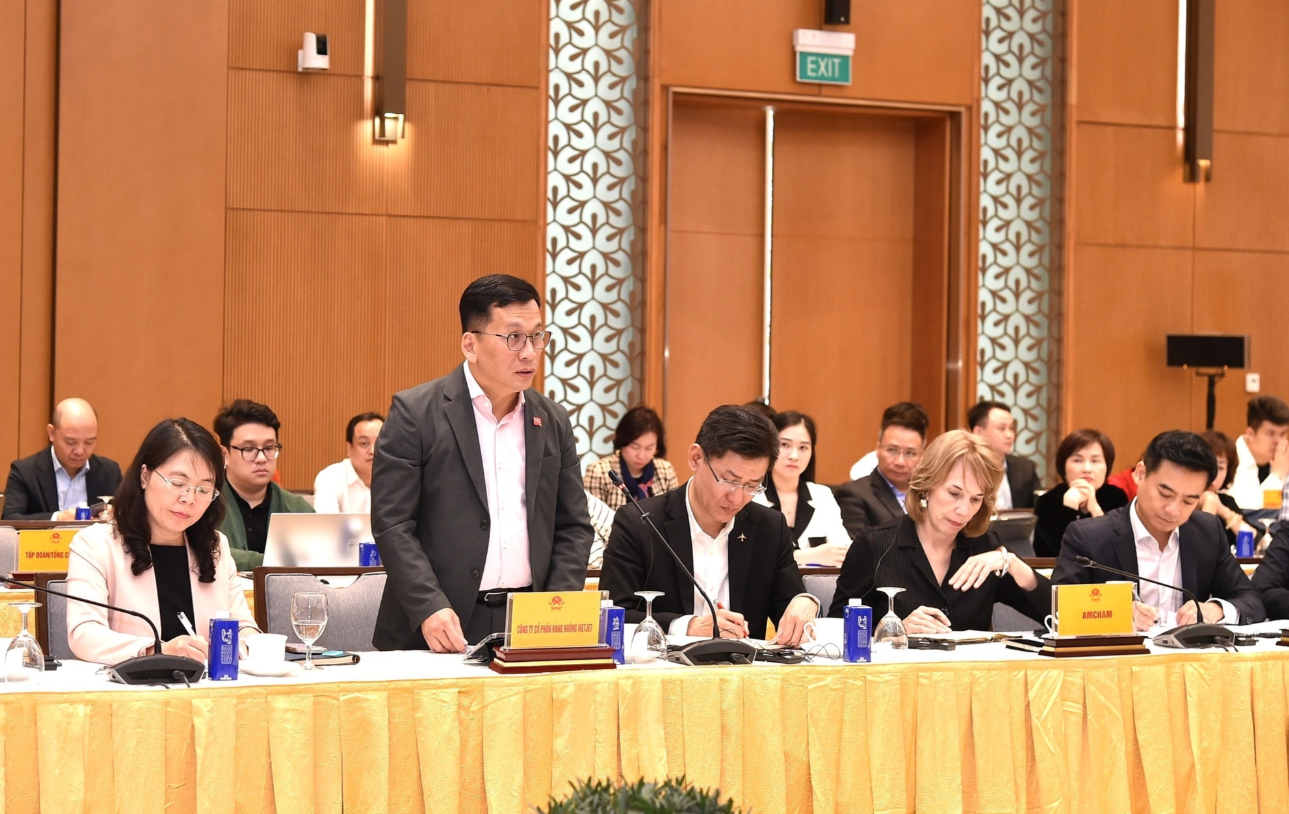Vietnam seeks 3-month US tariff delay for talks
THE HANOI TIMES — Vietnam has asked the United States to postpone planned reciprocal tariffs for one to three months to allow time for negotiations, Deputy Prime Minister Ho Duc Phoc said on Thursday.

Deputy Prime Minister Ho Duc Phoc at the meeting. Photos: VGP
"The government has called on the US to temporarily postpone the imposition of reciprocal tariffs for one to three months for negotiations in the spirit of fairness and mutual benefit," Phoc said at a meeting with business associations, enterprises and Vietnamese missions abroad to discuss tariff strategies.
At the meeting, Phoc reiterated Vietnam's willingness to engage in talks with the US and expressed hope for a mutually agreeable outcome. He urged Vietnamese exporters to the US to maintain current prices while awaiting the results of the negotiations, and called on companies to proactively take measures to avoid losing access to the US market.
The 10% across-the-board tariff comes into effect at 12:01 a.m. EDT (0401 GMT) on Saturday, April 5, while the higher, reciprocal tariffs kick in at the same hour on April 9. Vietnam is subject to a 46% tariff, one of the highest, which Washington says is in response to Vietnam's 90% import tariffs on US goods.
According to Vietnam's Customs Department, the country exported $119.5 billion worth of goods to the US in 2024, while importing $15.1 billion.

Vietjet CEO Dinh Viet Phuong at the meeting.
Representatives from several sectors expressed concern about the US tariffs, but emphasized the strategic importance of the US market. Many said they were willing to increase imports from the US and provide documentation on origin and production capacity to help the negotiation process. "We have to keep this market at all costs," said a business representative.
Government ministries, including Agriculture and Environment, Industry and Trade, State Bank, Science and Technology, and Finance, committed to ongoing dialogue. Officials said they would review and remove technical barriers and adjust tax policies on key commodities.
Vietnam expressed interest in importing more US high-tech and technology-intensive products to balance bilateral trade. Phoc added that monetary, interest rate, and credit policies would remain supportive of business and trade activities.
"Vietnam remains proactive, cooperative, and committed to negotiating tariffs fairly, preventing transshipment, and boosting two-way trade in a mutually beneficial way," he said, noting Vietnam's willingness to increase imports from the US and deepen cooperation in science, technology, and digital transformation.
Phoc highlighted Vietnam's ongoing tax reforms and improvements to the investment environment, including Decree 73/2025, issued in March, which reduced several tariffs on US imports. He also noted recent efforts to facilitate US business operations and expand procurement of US goods, including aircraft and LNG.
"In the coming period, the Vietnamese government will continue to increase purchases of raw materials and equipment from the US," Phoc said.
Representatives from the American Chamber of Commerce in Vietnam and the US-ASEAN Business Council praised Vietnam's timely and balanced response to the tariff issue. Phoc also asked them to convey Vietnam's good will to President Donald Trump's administration.
"This is to ensure that the negotiations are effective, produce positive outcomes and contribute to the advancement of the Comprehensive Strategic Partnership between the two countries," Phoc added.











